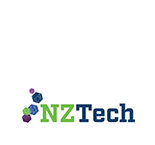By Mitchell Pham, Chair of the Digital Council for Aotearoa New Zealand.
Members of the Digital Council’s research team and secretariat participated in a wānanga with Māori Data Sovereignty experts last week. The roopū gave us their views on the Digital Council’s exploration of trust and trustworthiness in automated decision making. They focused on Māori trust in the Crown, and the technology systems the Crown uses as part of its decision-making processes.
Not surprisingly relationships were central to our discussion. Te Tiriti sets the foundation for this relationship and therefore needs to be a critical part of any future conversations around trust. An important and somewhat ‘basic’ concept within this is reciprocal trust. “We will trust the government when they trust us”. The sharing of power was considered an important underpinning feature of the relationship between Māori and the Crown.
There are around 20 Māori kupu that speak to trust
Language was another important part of the conversation. Wānanga participants noted that there are around twenty Māori kupu that speak to “trust”. Language can underpin values — the wānanga participants noted that having shared values can help build trust.
Improving Māori capability and capacity in digital skills
Again, not surprisingly improving Māori capability and capacity in digital skills was a central part of the discussion. Because we know this will not happen quickly, participants felt that this focus sometimes defers the responsibility of the problems we have now into the future. What can we do now, while building capacity? What jobs are available? How do we map the system and the team? Who do we ask? Who do we grow, and how?
And once we’ve grown them, how do we look after them? In the tech space let’s demand that no Māori work alone. Implement a tuakana-teina model of hiring. If we have versions of this model happening already, eg Nicholson Consulting, let’s share these models.
“We don’t leave a carving in the rain”
In relation to algorithms, how do we care for code in relationship to people? Code (ADM/algorithms) are relationships with people. We use ADM to reflect back to people their lived experiences. How do we care for that code, adapt it and make sure it’s dynamic to change?
Whilst there may have been a feeling of déjà vu within the whare, and an acknowledgement that at times it can feel like we’re going over old territory, there was a renewed sense that these conversations are urgent — that the conversations need to move at the same speed that technology is being developed.
ACTIVITY SUMMARY
- Last week the full Digital Council met for a day to work through the findings of our research into trust and trustworthiness in automated decision making. We now loop back into various groups to try and tease out possible recommendations. This week we’re meeting with the Disabled People’s Coalition and government representatives.
- This week we had a town-hall meeting with Pasifika community representatives. We wanted to understand the digital issues that are important to them, hear about their work in this space that we could amplify, share our aspirations, and more importantly, hear about theirs.
- Our Chairperson, Mitchell Pham, and Deputy Chair, Rachel Kelly opened and moderated parts of the Government Digital Transformation Summit on Wednesday this week. Toi Āria also gave participants and opportunity to experience The Comfort Board and discuss their own levels of comfort with the way automated decision making is used in society.
- Council member Nikora Ngaropo will be meeting with the Māori Economic Advisory Board. The Board provides on-going stewardship, monitoring and evaluation of the implementation of the Māori Economic Development Strategy He Kai Kei Aku Ringa. A key priority for the Board is digital inclusion which is also the focus of the Council’s 2021 work programme.
- We meet remotely this week with members of the Singapore Personal Data Protection Commission to look at how they developed their Model AI Governance Framework.






